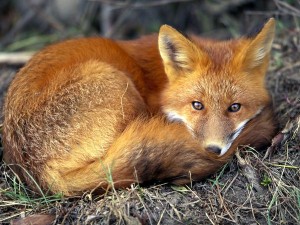 Do not call me sly.
Do not call me sly.
Ay yi yi:
Animal ethicists are calling for a new vocabulary about animals, shunning words such as “pets,” “wildlife,” and “vermin” as derogatory and even suggesting “animal” is a “term of abuse.”
Common language on fauna betrays an “anthropocentric bias” and impedes an understanding of our interaction with the non-human species sharing the planet, argue the editors of the first academic journal dedicated to animal ethics in their debut issue.
Instead of “pet,” the Journal of Animal Ethics suggests “companion animal.” Rather than “wildlife,” they are to be called “free-living.” “Differentiated beings” or “non-human animals” is preferred to simply “animals.”
Words such as “vermin,” “beasts” and “critters” are stricken completely, along with similes such as “sly as a fox,” “drunk as a skunk,” “eat like a pig,” “slippery as an eel,” “breeding like rabbits” and “stubborn as a mule.”
“We will not be able to think clearly unless we discipline ourselves to use more impartial nouns and adjectives in our exploration of animals and our moral relations with them,” the editors write.
Sorry, this probably makes me insensitive to the feelings of non-human animals — good thing they don’t read blogs! — but “differentiated beings”? GTFO. Or get a new hobby or something, I dunno, anything other than insisting that the word “pet” betrays an anthropocentric bias (ANTHROPOCENTRIC, also, just saying). And as long as we’re Outraged about really ridiculous things like the word “critter,” maybe we should be upset about the fact that there’s a photo of a fox on the front page of this blog — if any mollusks are reading, they are really freaked out right now. Let’s Ask A Spider about it.
Also, if “animal” is a “term of abuse” (um), why is “companion animal” ok? If I call a puppy my “companion bitch,” am I in the clear as long as it’s a girl-puppy? SO MANY QUESTIONS.
(Usual caveats: Language is important and I love animals as much as the next cat lady. But who exactly is being offended here, and how is shifting language going to help anything in this particular situation? Also eels really are slippery, foxes are pretty sly for the most part, drunk as a skunk just rhymes, and you’ll pry the word “critter” out of my cold dead jaws.)
(Also, I had a friend once whose dad used to say was “built like a brick shithouse.” Not the nicest way to describe her, but as a simile, not insulting to the shithouse.)